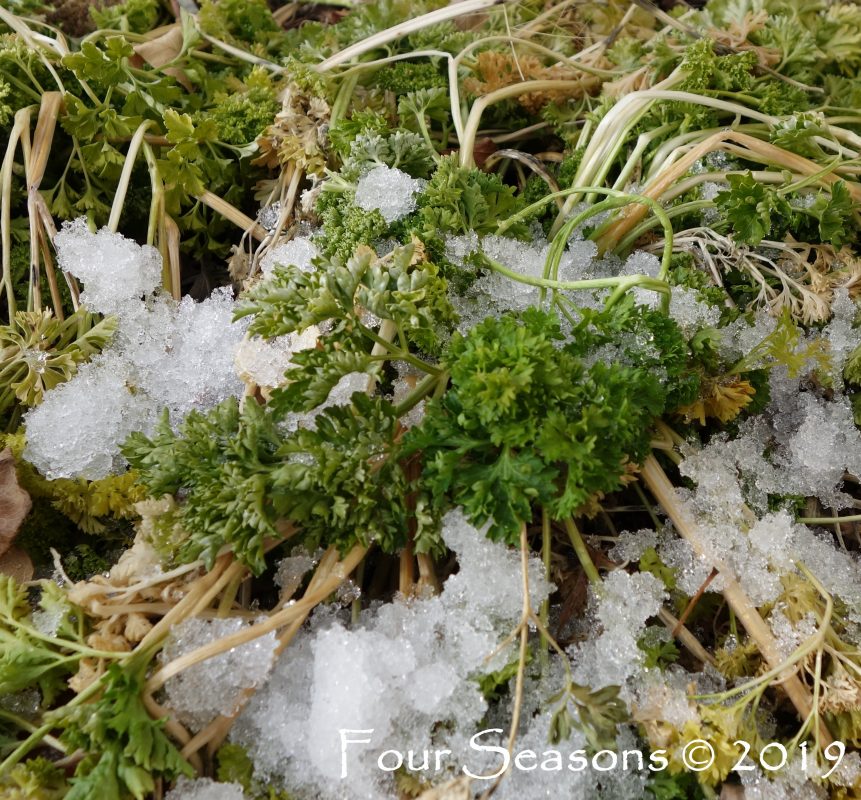This week I get to talk about a word that I haven’t been able to use in a few years- snow! If cold weather is beneficial for your garden, then snow is the icing on the cake.
The obvious benefit of a good snowpack for any area, and most importantly in our area, is the added moisture. The rain, freezing rain, and snow this past week put us at 95% of normal snowpack on the map and that’s a wonderful thing to see after the drought of last year. Although the rain that some areas received last week was most welcome, those areas that received their storm in the form of snow may have a slight advantage. Whereas the rain was either quickly absorbed into the ground or ran off immediately, in most cases the snow will melt more slowly which allows it to seep into the soil providing moisture to a deeper level.
Not only will the snow increase the moisture content of our soil, but it also provides excellent insulation for your plants and garden. I say both plants and garden because they are really two separate things.
Even though it seems contrary to the principle, plants that are covered in icy, cold, frozen snow are actually insulated very well against bitter cold nighttime temperatures. Some of the snow covering my parsley in the back garden melted off over the weekend and I have green, growing parsley underneath because it was well protected from the recent bitter temperatures. Snow also shields your plants against winter winds that can dry them out and do permanent damage.
A good snowpack will protect your garden soil because it keeps it from eroding or blowing away in the winter winds. Just like with your plants, snow cover also serves as a good insulator for soil by keeping the temperature a bit warmer. For instance, if you have perennials that die back to the ground back like peonies, lily of the valley, or bleeding hearts, snow cover helps insulate those roots or rhizomes giving them a greater chance of survival through a bitter cold winter. The most common cause of winter kill among these kinds of plants is lack of moisture and bitter temperatures and a good snow cover with help solve both of those problems.
On the downside, a heavy, wet snow or freezing rain storm like we had this past week can do some damage to your garden by breaking branches. When we have storms that cover trees and shrubs, gently shake it from tree limbs and shrub branches to avoid breakage. If some of them have been damaged, prune them back with a clean cut to avoid further splintering and damage or the possibility of diseases or pest infestation through the exposed wood.
If you have walkways around your garden that need to be treated to remove the snow or to provide traction, remember to be sure to choose a product that will not cause damage to your garden from the run off. Most salt preparations and chemicals can, so choose birdseed, kitty litter, or sand to provide a safe walking surface. The birds will thank you too!
In the meantime, enjoy the winter and bless every snowflake because they mean it’s going to be a great gardening summer!

